
"Among all the singular and interesting records to which the institution of American slavery has given rise," Harriet Beecher Stowe once wrote, "we know of none more striking, more characteristic and instructive, than that of JOSIAH HENSON." Stowe first wrote about Henson's 1849 autobiography in her 1853 book A Key to Uncle Tom's Cabin, an annotated bibliography of sorts in which she cited a number of nonfiction accounts she had used as source material for her bestselling novel. Stowe later said that Henson's narrative had served as an inspiration for Uncle Tom.
Proslavery newspaper columnists and southern planters had responded to the huge success of Uncle Tom's Cabin by accusing Stowe of hyperbole and outright falsehood. Benevolent masters, they said, took great care of the enslaved people who worked for them; in some cases, they treated them like family. The violent, inhumane conditions Stowe described, they contended, were fictitious. By naming her sources, and outlining how they had influenced her story, Stowe hoped to prove that her novel was rooted in fact.
A Key to Uncle Tom's Cabin was an immediate success; its publisher reported selling 90,000 copies by the end of 1854. Abraham Lincoln himself may have read the book, at a crucial turning point in the Civil War: Records indicate that the 16th president checked it out from the Library of Congress on June 16, 1862, and returned it on July 29. Those 43 days correspond with the period during which Lincoln drafted the Emancipation Proclamation.
Denne historien er fra October 2023-utgaven av The Atlantic.
Start din 7-dagers gratis prøveperiode på Magzter GOLD for å få tilgang til tusenvis av utvalgte premiumhistorier og 9000+ magasiner og aviser.
Allerede abonnent ? Logg på
Denne historien er fra October 2023-utgaven av The Atlantic.
Start din 7-dagers gratis prøveperiode på Magzter GOLD for å få tilgang til tusenvis av utvalgte premiumhistorier og 9000+ magasiner og aviser.
Allerede abonnent? Logg på

Apocalypse, Constantly
Humans love to imagine their own demise.

A Palestinian American Sex and the City
Betty Shamieh's debut novel is a rebellious rom-com.
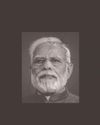
Modi's Failure
Why India is losing faith in its strongman leader

The Anti-Social Century
Americans are now spending more time alone than ever. It's changing our personalities, our politics, and even our relationship to reality.
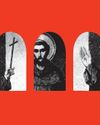
The Wild Charity of Saint Francis
The guide we need, now that kindness is countercultural
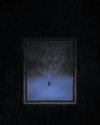
Where Han Kang's Nightmares Come From
In her novels, the South Korean Nobel laureate returns again and again to her countrys bloody past.
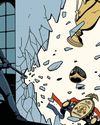
TROPHY HUNTERS
A GROUP OF CHILDHOOD FRIENDS PULLED OFF A STRING OF THE MOST AUDACIOUS SPORTS-MEMORABILIA HEISTS IN AMERICAN HISTORY. THEN THEY DID SOMETHING REALLY CRAZY.

THE NEW RASPUTINS
Anti-science mysticism is enabling autocracy around the globe.
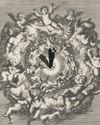
ARMY OF GOD
AMERICAN CHRISTIANS ARE EMBRACING A CHARISMATIC MOVEMENT KNOWN AS THE NEW APOSTOLIC REFORMATION, WHICH SEEKS TO DESTROY THE SECULAR STATE. Now THEIR WAR BEGINS.

WHAT NOT TO WEAR
The false promise of seasonal-color analysis